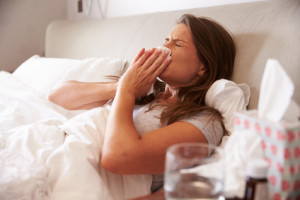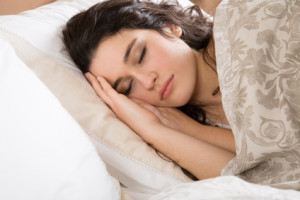How can lack of sleep affect your health?
Flu season is coming up. How can you prepare yourself?
 If put straight, cold could be one of the most common diseases that one could develop, and that too purely due to lack of sleep. A bad cold or flu can make you weak and tired and disturb your daily routine, that means not only the end to your day’s job, but also to fun activities you might have planned, meaning no clubs, no match nights and definitely no hangouts with friends.
If put straight, cold could be one of the most common diseases that one could develop, and that too purely due to lack of sleep. A bad cold or flu can make you weak and tired and disturb your daily routine, that means not only the end to your day’s job, but also to fun activities you might have planned, meaning no clubs, no match nights and definitely no hangouts with friends.
You may develop cold due to several reasons; some of them include fever, weather change, and according to a recent study, even due low amount of sleep, which we are going to discuss further here.
According to a recent study published by a renowned journal in the US, it was stated that having low amounts of sleep may lead to symptoms that may lead to cold in the long term, and the overall increased risk of developing a cold in the future too.
In order to understand the concept and to test the theory, a research was carried out prior to the publishing, in which nearly 170 volunteering participants were given a dose of the cold virus by the researchers themselves, using nasal drops infected with cold germs. The aim of the research was to observe the behavior of the body when exposed to the nasal virus, and to analyze the different factors that may alter the way the body fights the disease. In order to collect sufficient data for analyzing, a sample of mucus was taken from the subjects every day, and assessed the behavior of the virus to create a mathematical model that could predict future outcome.
nearly 170 volunteering participants were given a dose of the cold virus by the researchers themselves, using nasal drops infected with cold germs. The aim of the research was to observe the behavior of the body when exposed to the nasal virus, and to analyze the different factors that may alter the way the body fights the disease. In order to collect sufficient data for analyzing, a sample of mucus was taken from the subjects every day, and assessed the behavior of the virus to create a mathematical model that could predict future outcome.
The participants were not chosen at random. Each of the volunteer went through a two-month medical screening test. Here, different parts of the participant’s daily routine were monitored, including their sleeping habits, which were also later recorded during the week of experiment.
After the experiment was completed, and a model was created, the results of the participants were compared, based on the amount of sleep they got before the virus, and the change in amount of sleep during and after the virus. The results were also compared between the participants themselves.
According to the results, subjects who were able to get about 6 hours of sleep were almost 4.2 times more susceptible to developing a cold during the long term, compared to the people who were able to get around 8 hours of sleep each night. People who got less than 6 hours were even more prone to the disease, offering nearly 4.5 times greater probability than the 8 hour group.
to developing a cold during the long term, compared to the people who were able to get around 8 hours of sleep each night. People who got less than 6 hours were even more prone to the disease, offering nearly 4.5 times greater probability than the 8 hour group.
The study, according to one of the scientists, was unique and more accurate in a way that the subjects were analyzed according to the number of hours they slept each night, rather than by actually preventing them from sleeping, which would provide inaccurate results due to the artificial nature of the experiment. The research was carried out by making use of the patient’s natural sleep cycle only, and not by any other means.
Even though the experiment may have proven to be successful, there is still a lot of research to be done on the topic, according to the scientists, before any major conclusion can be drawn. These researches need to be based upon the importance of sleep and their connection with diseases, so that a clear cut image can be drawn upon.
According to the main character of study, Aric Prather, more studies need to be carried out so that people may realize how a sufficient amount of sleep is pivotal to our wellbeing and health.
 What we do know for now is that our sleep is as crucial to us as our diet, exercise or needed doses of vaccination. Change your nocturnal habits and you can literally invite influenza, apart from mood changes, headaches and overall health deterioration. You are better off maintaining your sleep cycle while enjoying a healthy, active life with proper sleeping hours and a peaceful mind.
What we do know for now is that our sleep is as crucial to us as our diet, exercise or needed doses of vaccination. Change your nocturnal habits and you can literally invite influenza, apart from mood changes, headaches and overall health deterioration. You are better off maintaining your sleep cycle while enjoying a healthy, active life with proper sleeping hours and a peaceful mind.
Conclusion; Try to sleep at least 7-8 hours during the fall season to prevent getting the flu or come in for a Reiki session which is equal to 4 hours of sleep and prevention of getting a cold. Another option is to use essential oils such as Thieves or Melaleuca.
Johanna Oosterwijk ND